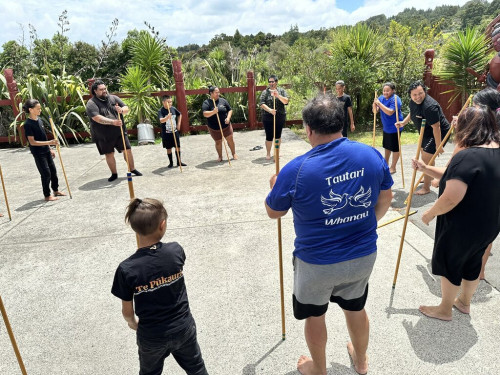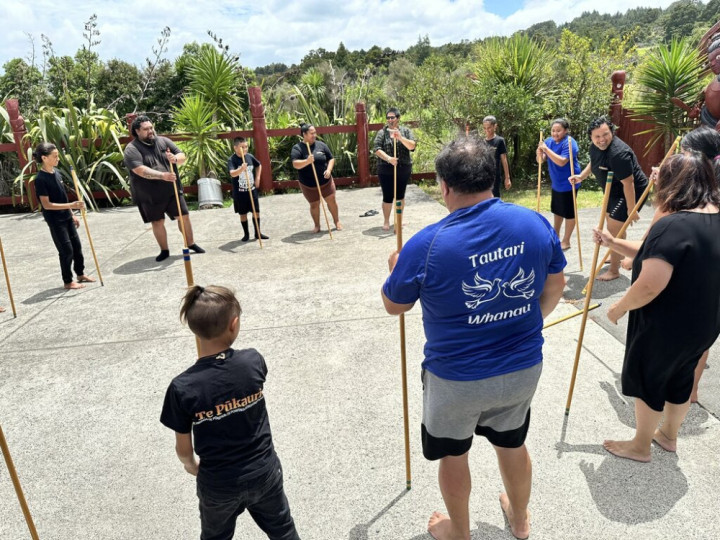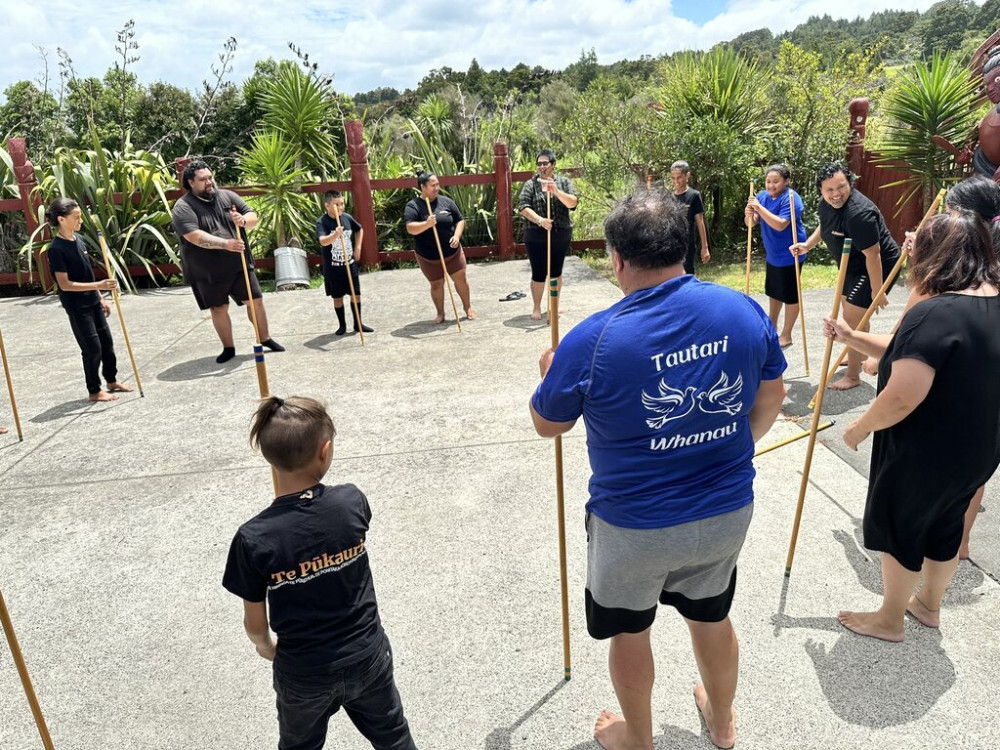Even the tiniest slice of uncooked kūmara – pito mata – is enough for new life to sprout and flourish, and it’s the same for people and whānau to live healthier lifestyles says Raiha Maunsell.
Te Pūkauri, a mātauranga Māori solution run by Maunsell Whānau Haka Tutors across Te Tai Tokerau, provides free wānanga for whānau groups to be immersed in kōrero tuku iho, where oral traditions provide encouragement and support to change behaviours for whānau to live healthier lifestyles.
“Pito mata can be barely anything left of the kūmara, but it still has the potential to grow and flourish when you nurture it,” says Raiha, Maunsell Whānau chief executive.
“It’s the same with the whānau we work with. Many of our people have had everything stripped away from them, their opportunities, their sense of place and their health. But there is still a sliver of themselves to nurture, so you can regain what you’ve lost and find what you’re looking for to grow and flourish.”
Supported by Te Aka Whai Ora funding, the wānanga draws from a wide range of tikanga, maramataka, rongoā and other forms of traditional knowledge to create better pathways for overall hauora, encourage whānau to live healthier lifestyles and empower local health professionals to consider different approaches to healing.
“Our mahi is to support whānau to find better health outcomes through mātauranga Māori and kōrero tuku iho. It’s about finding pathways out of the difficulties we find in Māori whānau, whether they are health-related or impacts of poverty and lack of opportunity; these are seen in things like family violence and poor health outcomes.”



Wānanga have also been delivered for local health service providers. “We’re also able to show to health providers a different perspective for healing. They get a lot of education from the pākehā world that is all about mainstream approaches, what we bring into view for them is health and healing through a Māori lens,” says Raiha.
“We’ve learned from tohunga a lot about what our ancestors used, and now we can share this with health providers so that they can have more tools to reach Māori in ways that connect with whānau,” says Raiha.
Te Aka Whai Ora Maiaka Mātauranga DCE Mātauranga Māori, Kingi Kiriona says Te Pūkauri is an example of how new perspectives, drawing on traditional knowledge, can address intergenerational health inequities that disproportionately impact Māori.
“The 2019-2020 Health and Disability System Review found that general health systems have not improved health outcomes for Māori, and recommended mātauranga Māori is better embedded in our health systems, that we invest more in kaupapa Māori health services, and further develop our Māori health workforce.
“Programmes like this, that draw from tūpuna for whānau to create better understandings of their own pathways to better health, show potential to lift health outcomes for all people in Aotearoa New Zealand.”